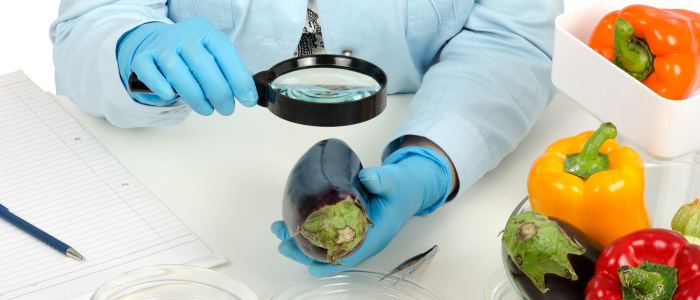
The recent Listeria monocytogenes outbreak and the fake goods riot of Soweto raised many questions regarding the issue around the safety of food consumed in South Africa. This should drive all stakeholders in the food industry to address the increasing consumer speculation that borders on safety and quality of food.
This served as the overarching aim of the food toxicology and risk assessment workshop hosted by The Department of Pharmacology at the University of Pretoria in association with SAAFoST and TOXSA on the 31st of August, 2018. The workshop drew participants from the academia, industry as well as regulatory agencies. The morning session emphasised issues regarding risk assessment while the afternoon centred on the toxicological aspects of food.
Food Safety is a critical part in achieving the sustainable development goals, hence the importance of conducting food toxicology and risk assessment in the food industry. Prof Vinny Naidoo, specialist veterinary pharmacologist and Acting Dean of the Veterinary Science Faculty at the University of Pretoria, shed light on the rigorous toxicological assessment of veterinary medicines residue in foods of animal origin. He stressed the need for educating farmers and their compliance with regulations regarding maximum residue levels and meat safety.
Prof Wilna Jansen van Rijssen, who has spent many years at the Department of Health and has published many articles on the burning subject of genetically modified (GM) foods discussed the difference between toxicological assessment of GM foods than that of chemicals. The challenges in toxicological assessment of GM foods include the issues of distinguishing between treatment and “background noise” such as the natural variations that may occur.
Issues surrounding the seemingly double standards of the regulatory authority to comply with accepted standards when dealing with EU countries or the US in the face of diminishing local standards and regulations were brought to light by Prof Wentzel Gelderblom. He is an adjunct Professor and Co-Chair of the Institute of Biomedical and Microbial Biotechnology at the Cape Peninsula University of Technology. Prof Gelderblom, an expert in fumonisin mycotoxicology, painted a frightful picture on the exposure level of fumonisin by the consumers of maize and maize products in the rural communities of South Africa. Fumonisin has been proven to cause birth defects and cancer through DNA damage among other health problems. He advocated the need for the country to set a local standard for the consumption of the toxin and not rely on the recommendation of the FDA in the United States.
In her presentation, Prof Elna Buys, Head of Department of Consumer and Food Sciences at the University of Pretoria, stressed the importance of food industry to source track microbial contaminants of industry origin in order to nip in the bud these harmful bacteria. She itemised the various steps and tools in identifying and quantifying these pathogens.
Prof Mary Gulumian, the Head of the Toxicology and Biochemistry Section of the National Institute for Occupational Health and President of TOXSA, discussed the assessment of dietary exposure within the context of risk assessment. Risk management is more complicated than just exposure and hazards one must also take into account the cultural, political, economic, ethical, social and engineering factors.
Prof Gyebi Duodu of the University of Pretoria’s Department of Consumer and Food Sciences focused his discussion on endogenous toxins, such as acrylamide, developed during processing of food. The crux of his message being that toxins created during food processing are consumed in such low levels that they cause no adverse effect to the consumer. Dr Alice Sigobodhla, Deputy Director of Veterinary medicines at the Medicines Control Council of South Africa, spoke about the toxicological assessment of food additives from a regulatory perspective.
Prof Vanessa Steenkamp, head of the Phytomedicine Unit in the Department of Pharmacology, University of Pretoria discussed the toxic substances found in commonly consumed plant foods. The key to reducing the risk of toxins naturally present in foods is to consume a varied diet.
Ms Liesl Hill who is a senior researcher at the CSIR shared with the workshop delegates the state of South Africa’s freshwater resources and the effects of anthropogenic activities. SA’s wetlands are critically threatened with a high level of toxic pollutants enough to kill fish and crocodiles. Poor water management and pollution have led to such a dire situation. The country urgently needs to protect our water resources to ensure our basic human right of access to clean water is not further infringed upon.
The workshop ended with acknowledgement by all the participants of the necessity for frequent and meaningful dialogue among risk assessors, risk communicators, food producers, retailers and consumers in South Africa in overcoming the food safety issues in South Africa.
Authors: James Elegbeleye Ayokunle and Abigail Smith



